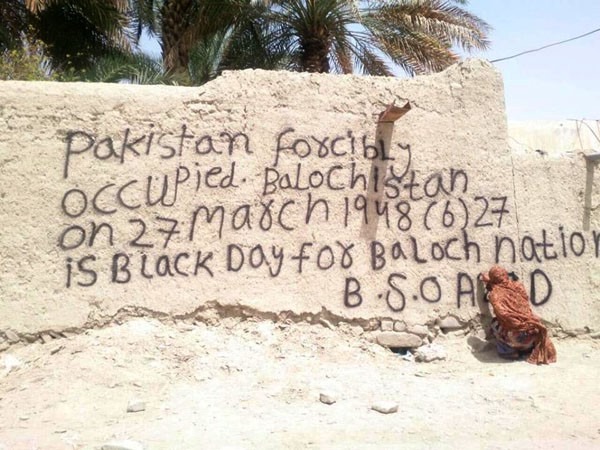
When the Baloch nation gained its independence from British colonial rule and was keenly maintaining the independence of their nation state at all costs, Jinnah turned towards Balochistan for the fulfilment of his evil intentions.
On February 5, 1948, Jinnah met Khan of Kalat in Dhadar and tried to persuade him to merge Balochistan into the unnatural and corrupt Pakistani federation. Meanwhile, Mir Ahmadiyar Khan informed Jinnah of the opinion of the Parliament as both the Houses of Parliament of Kalat (Balochistan) had rejected the proposal of the annexation of Balochistan with Pakistan by an overwhelming majority.
On February 21, 1948, the Parliament of Balochistan held another session to discuss the issue of annexation with Pakistan, but the proposal of the annexation was once again rejected unanimously. Disappointed, Jinnah handed over the affairs of Kalat State to the Foreign Office and informed Khan Kalat about this in a letter dated March 9, 1948.
However, Jinnah succeeded in deceiving Jam Ghulam Qadir (Jam of Lasbela), Nawab Ghulam Khan Gichki (a member of the upper house) and Nawab of Kharan, Mir Habibullah Noshirwani (a member of the upper house) on 17th March 1948, after which they announced accession to Pakistan by neglecting the will of the majority.
No law in the world endorses the fact that a country can forcibly occupy another nation by violating their laws, constitution and bypassing their democratic institutions. But Pakistan committed this illegal and offensive act with the collaboration of British generals and Jinnah.
The Baloch state opposed this illegal move and wrote remonstrance letters to the Pakistani state, but the Islamabad’s government run by Punjabi elite overwhelmed with power was not willing to listen to any complains what so ever.
The world kept silence on this illegal act of Pakistan, and on March 26, 1948 the Pakistan Army marched on district Kech and Panjgur. On the other side, the Pakistani navy took control of the coastal areas. And Pakistan finally completed its occupation of Balochistan through various tricks, excuses, greed and coercion.
Meantime, Khan Ahmadiyar Khan was in Karachi to raise his voice against this illegal move, where he was forced to sign the Kalat State accession with Pakistan. Despite this the Pakistan Army invaded and seized control of Kalat city, the capital of Kalat state on March 27, 1948 by use of brutal force. And since March 27, 1948 Balochistan continues to be under illegal occupation of Pakistan.
The month of March is significant in Baloch history, on March 27, 1948 the Pakistani state occupied the Baloch land and subjugated the Baloch nation. The 73 years of slavery has seen the blood of thousands of Baloch people, thousands of Baloch innocent civilians have been disappeared at the hands of Pakistani security forces. These disappeared Baloch people have remained missing for decades, and millions of Baloch became IDPs (internally displaced persons). But 73 years of slavery could not subdue the Baloch nation and couldn’t obstruct it from the dream of obtaining an independent Balochistan.
As the political and armed struggle against occupier Pakistani forces have intensified, thousands of Baloch have been targeted and killed in custody. There were thousands of enforced disappearances and more than 200,000 people have been forced to flee from their homeland and become IDPs (internally displaced persons).
During this 73 years struggle against subjugation, the Baloch nation has faced many up and downs. After 2002, for the first time, the struggle for independence of Balochistan began to take shape on a permanent and organizational basis.
The Baloch nation has long fought and struggled against slavery, sacrificed its generations and continues to do so to gain its national identity. This is why the Baloch nation is known today as a living nation.
Martyred Ghulam Muhammad Baloch, the chairman of the Baloch National Movement (BNM), for the first time, conveyed the historical significance of 27th March to the people in every city, town and village of Balochistan through a brochure of BNM in 2005.
Earlier, full details of Pakistan’s occupation of Balochistan had not reached the general public, though the educated and political activists were aware of the importance of this day.
Today, 73 years of long slavery has consolidated the Baloch struggle on an ideological and political basis, a sign of the survival of any nation. This day is considered every year all over Balochistan as a Black Day. This 27th day of March reminds the young generation about how Pakistan forcibly occupied Balochistan at the behest of the British government.
